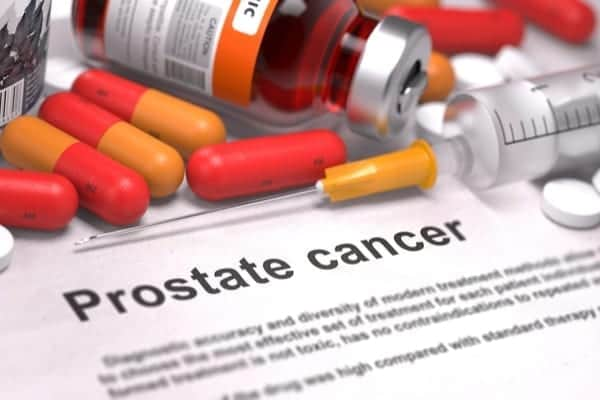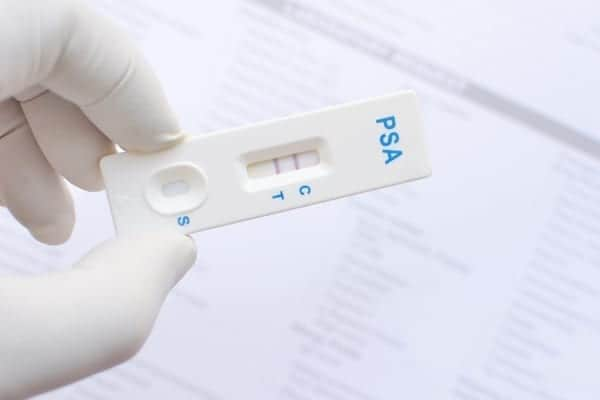I survived prostate cancer thanks to an eight second rectal exam


With the news this morning that the number of deaths in the UK caused by prostate cancer has overtaken breast cancer-related deaths for the first time, there has never been a better time to spread awareness about the disease.
Here, prostate cancer survivor David Kurk recounts his own story – and reiterates the point that getting tested is crucial, even if the results aren’t foolproof.
Advertisement
Hide AdAdvertisement
Hide AdI’m not a particularly remarkable person. I moderate and host conferences for people for a living.


I’m divorced. I’m about to get re-married. I’ve got two grown-up children.
In about April 2013 I read an article about prostate cancer and it had never been on my radar before. I’d never thought about it.
And I just thought: ‘I’m kind of the right age, maybe I should go and get myself checked. What have I got to lose?’
Advertisement
Hide AdAdvertisement
Hide AdI’m now 59. I was 55 when I was diagnosed with prostate cancer.


It’s not an admission of weakness to talk about prostate cancer. It’s actually a strong thing to go and get checked.
Getting checked for the first time
I had a blood test and it came back negative. It actually came back at 1.8, and 4 is the marker on PSA (prostate-specific antigen).
If it’s over 4 you need to be a little bit concerned and have a look, but I was all clear. The GP there also gave me a digital rectal examination, felt nothing and said everything was fine.


Advertisement
Hide AdAdvertisement
Hide AdLuckily, he took a urine sample while I was there. He put some litmus paper in it and it changed colour.
He said, ‘Ah, it looks like you might have a bit of a bladder infection. I want to send you for a cystoscopy’.
It was a bit like one of those National Geographic underwater programmes – you actually see the inside of your bladder on a screen.
That was all clear too, but the registrar who conducted the cystoscopy suggested another rectal examination – belt and braces.


‘I heard the five words I never wanted to hear’
Advertisement
Hide AdAdvertisement
Hide AdEight seconds of a finger up my backside has probably given me another 20 years of life.
The registrar felt a nodule and recommended a biopsy. They took a biopsy in May of 2013 and on June 11 at 2:55pm my world fell apart when I heard the five words I never wanted to hear.
‘David, unfortunately we’ve found cancer.’
About 50 per cent of my prostate was full of cancer.
'The side affects post-surgery were impotence and incontinence' (Photo: Shutterstock)
A mate of mine suggested Prostate Cancer UK, and I got in touch with them. They were fantastic.
Advertisement
Hide AdAdvertisement
Hide AdA nurse called John phoned me for two hours that night, so he kind of allayed my fears and we had a lot of discussions about options.
I was offered radiotherapy, brachytherapy and a radical prostatectomy – the most invasive. I opted, eventually, for the prostatectomy.
My thinking was that if I got it out of me and it hadn’t spread then it would be gone.
The impotence issue
The side affects post-surgery were impotence and incontinence. I worked on strengthening my pelvic floor to combat my loss of bladder control, and the symptoms do lessen the stronger those muscles become
Advertisement
Hide AdAdvertisement
Hide AdOf course, impotence is a really big issue for guys, but my rationalisation was that if I’m not getting erections for a while, it means I haven’t got cancer.
I got offered viagra, but you have to decide to use them an hour before you want to get romantic. The physical side of things is still a work in progress, but it comes back if you work at it.
Why men need to get checked
I badgered all of my friends to get checked.
Four of them found out they had prostate cancer, and one found out he had bowel cancer. All of them have been treated and they’re all okay.
One in eight white men and one in four black men get prostate cancer. On average, one man in every eight will have prostate cancer.
Every hour, one man dies of prostate cancer.
Advertisement
Hide AdAdvertisement
Hide AdA PSA test is a blood test that can help detect if you have a problem with your prostate, such as an enlarged prostate or prostate cancer (Photo: Shutterstock)
But prostate cancer tests are not 100% foolproof
Getting checked is crucial, but – having said that – there are no tests which are foolproof. They can’t be relied upon.
Breast cancer screenings give a very accurate measure, but there is no accurate test for prostate cancer.
All of my tests were negative. Had it not been for the vigilance of my doctors and for that urine sample, I would have been none the wiser and I wouldn’t have felt any different. I didn’t feel ill before I went to the doctor.
Advertisement
Hide AdAdvertisement
Hide AdCharities like Prostate Cancer UK are raising awareness, and investing in research that will go towards finding an accurate way of diagnosing this terrible disease.
Key risk factors for prostate cancer
Age – Prostate cancer mainly affects men over 50, and your risk increases with age
Family history – You are two and a half times more likely to get prostate cancer if your father or brother has had it, compared to a man who has no relatives with prostate cancer
Ethnicity – Black men are more likely to get prostate cancer than other men of the same age
For more information on prostate cancer, visit prostatecanceruk.org or call 0800 074 8383